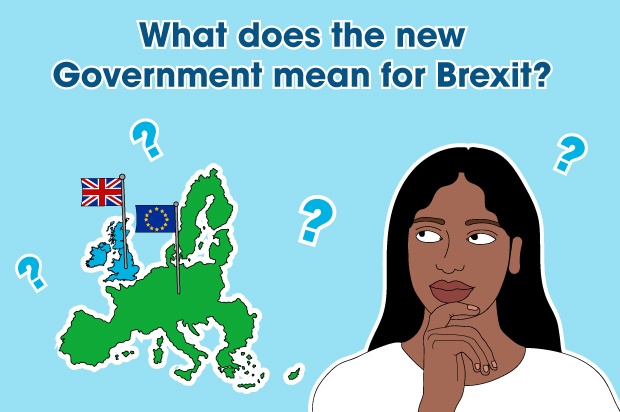Update: Brexit & the new government
Following the general election, Boris Johnson and the Conservative Party now have a majority in the UK’s parliament. So, what does that mean for Brexit?

What do the election results mean for Brexit?
The UK’s latest general election took place on Thursday December 12th. As the results from different constituencies were announced, it became clear that the Conservative Party would win with a clear parliamentary majority and that Boris Johnson would remain Prime Minister.
Not many young people voted for the Conservatives, only 21% of those aged 18 – 24 (according to a post election survey carried out by YouGov) did so, but 56% voted for Labour, so you may have been disappointed by the result.
Why is a parliamentary majority important?
A parliamentary majority, also known as a working majority, means a ruling political party has enough MPs to vote on proposed legislation and win.
What does this mean in terms of Brexit?
Brexit, and “getting Brexit done,” was the main message of the Tory Party campaign. But how do they want to do that?
Boris Johnson wants the UK to leave the European Union no later than January 31st, 2020. There will be a transition period to allow for negotiations, but Johnson plans to create a law saying that this period must end by December 31st, 2020. Currently, Britain is allowed another extension if an agreeable deal hasn’t been reached, but Johnson believes the fixed deadline will “focus minds.”
The European Union have said that this deadline could limit Britain’s options and could weaken the UK’s negotiating position.
What kind of deal will we get?
It’s still too early to say and there are many areas that need to be considered. Cabinet Office Minister and Conservative MP Michael Gove, who has been responsible for planning how the government would respond to a no-deal Brexit, hasn’t ruled out the possibility of not having a deal.
There have been concerns about the right of EU citizens to continue living and working in Britain (if you don’t have settled status, read our article about how to apply here) Some are also worried about human rights; workers rights and the privatisation of the NHS, which, if it happened would mean we would have to pay for more and more of our healthcare.
Senior Torys have said these things are unlikely to happen, but opposition parties and activist groups still have concerns.
You can read more on how a no deal Brexit could affect you here.
Brexit jargon
Free movement: As part of the European Union’s single market, all citizens of member states have the right to live, work, study and travel in any other member state. This includes accessing public services, such as the NHS, and benefits.
Mandate: In general terms, having a mandate means having the authority to carry out an order or policy. In terms of Brexit, it’s usually used when talking about the government having the backing of the country and of parliament to carry out a policy e.g., “Johnson’s majority parliament gives the Conservatives a mandate for Brexit.”
Tariff: A tax paid on goods coming into a country and occasionally on goods leaving a country.
Transition period: A period of time where the UK and the EU can agree on the terms of their future relationship. The UK wouldn’t be able to vote on any new EU laws, but citizens of the UK and of EU member states would still have their previous rights, including that of free movement.
You can keep yourself up-to-date on events, by reading a variety of newspapers and websites to get a balanced view. You can also visit The Mix for factual breakdowns. If you’re worried about Brexit or find it is making you anxious, read our advice here.
Think we could improve our Brexit content? Take part in our Brexit survey here and tell us how!
Next Steps
- Here for Good offer free immigration advice to EEA citizens and their non-EEA family
- Coram's Children's Legal Centre offer legal advice about applying for settled status
- The EU Londoners Hub is a brilliant resource (not just for people from London!) If you or your family are from the EU you'll find lots of detailed information on their website
- Find your local Citizens Advice here, for free and independent legal advice. Or call their helpline. 03454 04 05 06
- Chat about this subject on our Discussion Boards.
By Holly Turner
Updated on 20-Dec-2019
No featured article














